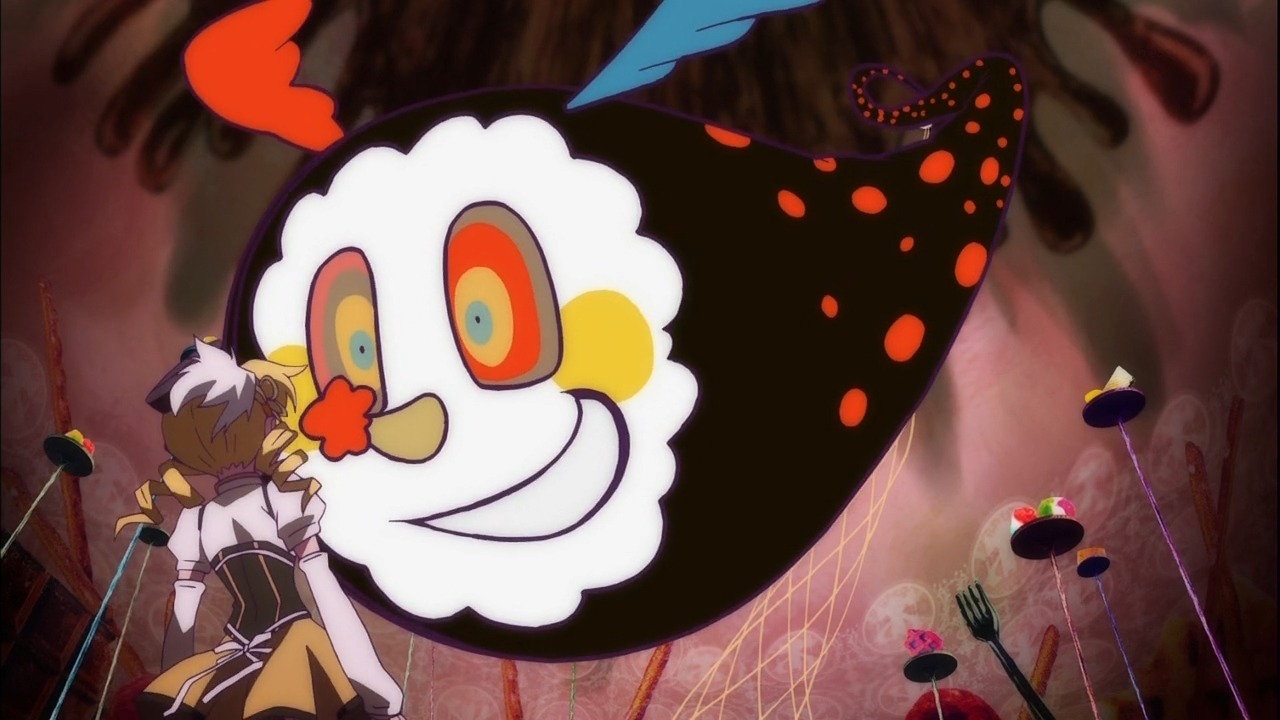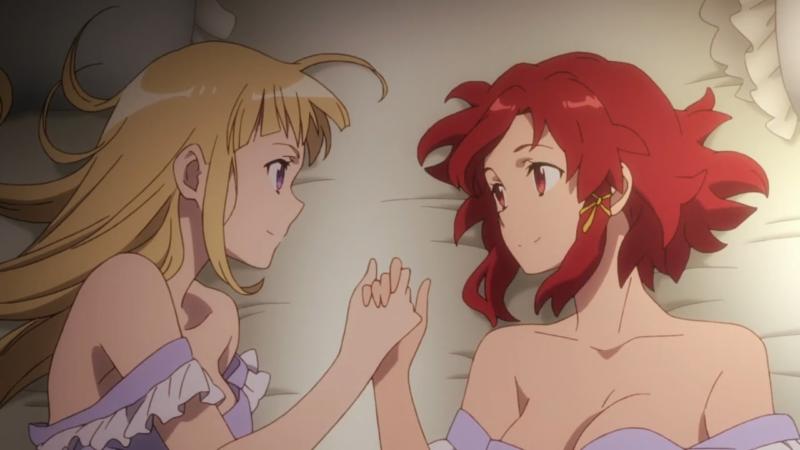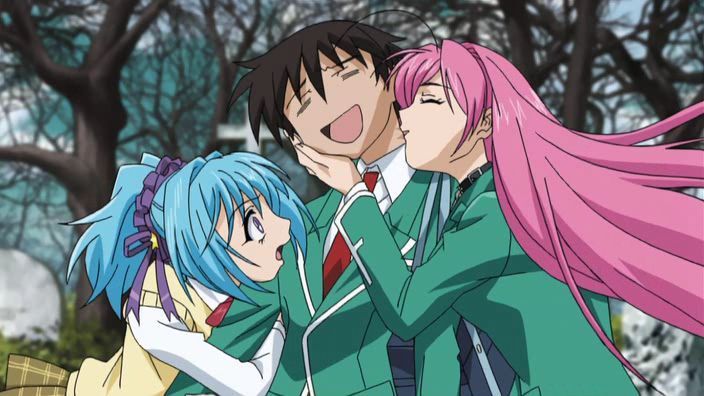
This anime is pure entertainment, but let’s overthink some of its themes and undertones. Just to note: this anime, like so many others, has problems with violating female body boundaries.
As you may suspect, there’s some fan service involved. After all, its an impulsive, immature teen boy swapping bodies with a pretty teen girl. But as anime goes, it stays fairly tame. In fact, the fan service brings me to one of the undertones I found interesting in the story. Whenever Yamada swaps bodies with Shiraisha, he tries hard to retain her dignity after his initial shock of donning a female body. In several scenes, fellow club member and closet perv Miyamura attempts to indulge his underwear fetish and grope Shiraisha while Yamada occupies her. Yamada resists and speaks out against such behavior. He doesn’t go as far as condemning (Anime needs to stop using molestation as humor). Interestingly, Shiraisha feels comfortable with Yamada in her body to the point where she doesn’t think much of him bathing and showering it during a school trip. There is a rather strange scene later in the anime where another woman occupies Shiraisha’s body and tries to flash Yamada after stripping off Shiraisha’s underwear. Yamada looks away and reacts with embarrassment even though he had already seen all of Shiraisha. While this could be seen as a typical fan-service seen or sloppy writing, it shows how Yamada cares about Shiraisha’s dignity. It seems odd to say fan-service can illustrate character, but the contrast of misogynistic behavior with Yamada’s reactions (which can be called mixed at best. He is, after all, still a teen male) says a lot of Yamada’s respect for women. He may have to kiss them often, but it tends to trouble him.

Beyond the goofy premise, the anime deals with loneliness. All of the witches’ powers focus on social connections in one way or another. Each feel alone in her own way. Loneliness pervades many anime stories. Shiraisha’s body swapping with Yamada is a metaphor for understanding. After all, we can’t fully understand a person without living in their skin. Yamada’s experiences as Shiraisha gives him insight he lacked–although his character doesn’t change as much as I would’ve liked. We each deal with loneliness at some time or another. At the root of loneliness sits the inability to fully connect with people. We can come close, but we can’t overcome the limitations of words and individual experience. Even swapping with Shiraisha can’t fully reveal her experiences. Yamada still retains his personality and his experiences; however, it gives him a chance to see life as she does even if he retains his own filters of the experience. Likewise, she sees his life through her filters. I’d have liked the anime to explore that part of the equation more, but we get only hints as to how Shiraisha experience’s Yamada’s life. One of the more interesting hints to her experience was going commando. It’s meant to be funny, but it could’ve been an interesting perspective if the anime had developed it.
Let me digress for a bit. I’ve seen people discuss how it’s silly to think deeply about fictional characters like this or use a fictional character as a role model. However, story is how we understand reality. Christians like me, for example, look to Jesus as a role model, but really, we don’t look to Him–we look to the stories of Him that have been passed down to us and how we understand them. Likewise with Muhammad in Islam. Even our experiences of other people–be them spouses, parents, siblings, friends, or enemies–are stories we tell ourselves. Yamada had a story about Shiraisha before he accidentally swapped bodies with her; then the story changed. Fictional characters may not be real, but the stories we tell ourselves about reality aren’t real either. They are an amalgam of our individual, limited perspectives distilled into a narrative. In the end, fictional characters–even from a goofy anime like Yamada and the Seven Witches–can provide insight in narratives that impact some people’s realities. I’ve wanted to swap bodies with people at times so I could better understand why they think as they do. Because stories shape everything we do, its vital to examine even fluffy fiction because every story we consume becomes a part of our own internal narratives. After all, our personal narratives determine what stories we consume, and in turn those stories reinforce or change our narratives in small ways. This is why I study anime and work as a librarian. Stories are what make us human and determine our actions. People hate because of the stories they tell themselves. People love because of the stories they tell themselves. And that is why it’s important to understand stories of all types, including anime. Fiction matters because it shapes how we view reality, often in ways we aren’t aware of doing.

Each of the witches change as they encounter Yamada and learn how the stories of him as a delinquent weren’t entirely true. While it is true some of this feels contrived, this is a common observation within anime. Encounters change people. The story later looks at what can happen when that influence disappears, but it doesn’t spend as much time on this as I would’ve hoped. Of course, this wasn’t meant to be a story examining the interplay of lives and stories. As this anime goes, it’s goofy fair, but it has charm even though the characters aren’t well developed. It has missed potential with all of its undeveloped undertones, and it suffers from the usual anime meathead problem and fan-service. But I’ve come to expect this from anime and enjoyed it for what it was. However, its charm makes it worth a watch if you are looking for a light story about loneliness and social connections.



